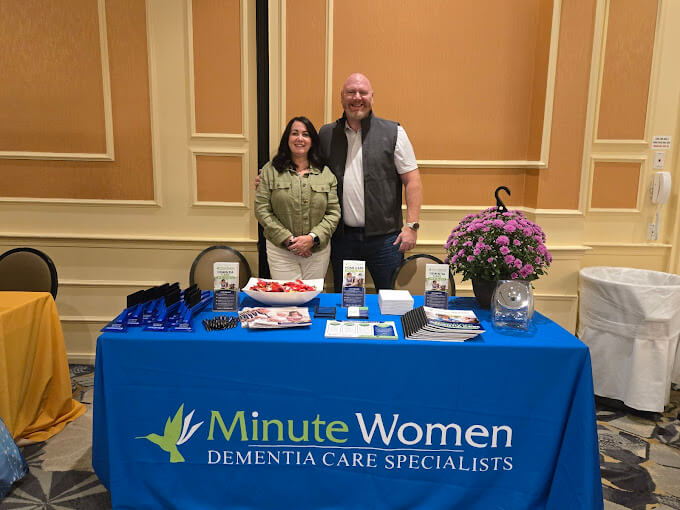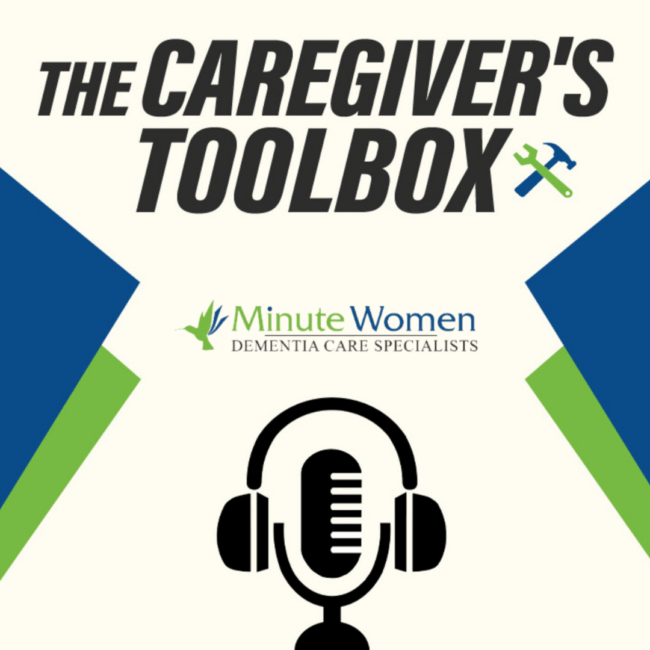7 Simple Ways to Care for a Sundowning Senior With Dementia
Do you know a sundowning senior who needs help? During the late afternoon and evening, a senior with dementia may find they start to feel more anxious or restless. Dementia sundowning is something that’s far more common than you may realize.
Still, the good news is that there are certain actions you can take to improve their quality of life and make managing home care assistance easier.
Keep reading to discover some of the best ways to handle dementia care at home.
What We’ll Cover:
- Listen to What They’re Saying
- Reduce Noise and Clutter Around the House
- Find a Simple Task to Distract Them
- Plan Early Evening Quiet Time
- Monitor Your Room Lighting
- Create a Safe Space at Home
- Follow a Pre-Bedtime Routine
- Key Takeaways
How to Provide Effective Home Dementia Care
Taking care of senior adults who have dementia, particularly those experiencing sundowning, requires a thoughtful and compassionate approach. This blog post will discuss best practices for caring for a loved one with dementia, focusing on managing sundowning and promoting their overall well-being.
Establishing a consistent routine is crucial when caring for individuals with dementia. A structured daily schedule can help provide stability and reduce confusion and anxiety. Creating a safe and calming environment is also essential. Removing potential hazards, minimizing distractions, and creating a soothing atmosphere with soft lighting and calming music can greatly contribute to their well-being.
Encouraging engagement in meaningful activities is another key aspect of dementia care. Participating in familiar and enjoyable activities tailored to their abilities and interests can help alleviate restlessness and agitation associated with sundowning. Effective communication plays a vital role as well. Using simple and clear language, employing visual cues, and practicing patience and empathy are important when interacting with your loved one.
Managing sleep patterns and seeking support are also crucial elements in dementia care. Addressing sleep disturbances by establishing a relaxing bedtime routine and limiting daytime napping can promote better sleep quality. Additionally, it’s important to seek support from family, friends, or support groups who understand your challenges as a caregiver. Considering respite care services can also provide you with the opportunity for self-care and rejuvenation.
Keep reading for our best recommendations on how to apply these tips to a senior in your life.
1) Listen to What They’re Saying
No matter how challenging it can be to provide hourly care for a family member or friend with dementia, you must do your best to remain patient and listen to their words. Sometimes there are hidden emotions behind what they are trying to say, especially when making unusual requests.
Often, what they say expresses their loneliness or fear, which are common issues for sundowning seniors. Anger and frustration are also frequently expressed through other statements.
Still, by listening carefully, you’ll be able to find ways to calm them down and understand what they are experiencing.
2) Reduce Noise and Clutter Around the House
Noise, clutter, and too many people can all aggravate a sundowning senior with dementia. Do your best to reduce distractions and minimize the visual stress this may cause your loved one.
Home care assistance starts by making your loved one’s environment easier to manage. We recommend keeping the number of family members and friends to a minimum during this time.
This step can only increase their anxiety and stress levels when too many people try to talk simultaneously.
3) Find a Simple Task to Distract Them
Distraction techniques are a good way to help a sundowning senior. We recommend offering them a snack or drink they particularly enjoy or finding them a TV show they love watching repeatedly.
Some people find that a simple task such as folding a towel can help at this time, as it will take their mind off the time of the day.
Whatever you do, avoid anything like watching the news on TV. This program can increase anxiety and decrease their chance of relaxing and sleeping.
Dementia treatment services can restore dignity, function, and happiness.
4) Plan Early Evening Quiet Time
The early evening must be a quiet time for in-home senior care, who will appreciate getting into a routine at this time.
What they enjoy doing may vary based on their interests, but going for a walk or listening to some calming music are great options. Memory care assisted living programs use these benefits to help seniors maintain healthy habits.
Others may enjoy reading or talking to a familiar friend on the phone. Finding a soothing activity will help you prevent sundowning symptoms and retain control during this time.
5) Engage in Light Exercise
One of the most common reasons for feeling restless in the late afternoon and early evening is becoming too tired. The best way to avoid this is to get outside or sit by a window to get exposure to bright light.
It would be best to encourage a sundowning senior to do daily physical activity to prevent these symptoms, which can be as simple as a gentle walk.
Make sure they are getting enough sleep at night-time as well. While seniors can rest during the day, ensure their naps are short and don’t fall too late in the afternoon.
6) Monitor Your Room Lighting
One of the best ways to prevent sundowning symptoms in the daytime is to let in as much natural light as possible. When it comes to the evening, it’s time to switch to softer room lighting.
Consider installing inexpensive smart lightbulbs that can automate when the lighting changes. These simple switches can make a huge difference to how the home looks and feels, relaxing them as you head into the early evening.
Private home dementia care is one solution that can help you monitor ambient light. Caregivers can follow a daily routine to make transitioning to evenings much smoother.
Find around-the-clock support for your elderly loved one today.
7) Create a Safe Space at Home
Your home should always feel like a safe space, which is even more important for dementia patients. Try to create a safe space where your family member can walk around without tripping over any obstructions.
A sundowning senior will often feel restless and may want to pace around the living room. You could even secure the backyard during the summer months, so long as you can keep an eye on them from where you sit inside.
Some people will also prefer to have you walk with them, which helps them feel more secure and less lonely during this time. Live-in care services can provide companionship in these difficult times.
8) Follow a Pre-Bedtime Routine
Everyone could benefit from a pre-bedtime routine, and this is no truer than for in-home senior care. Memory care assisted living often helps seniors with wind-down routines.
It’s hard to go from doing normal daytime activities to switching off your mind to sleep. Make sure you stack a few calming activities to help them transition.
Start by switching off any music and TV shows that are too noisy, and consider using a relaxing room spray around the home. Everyone has a different activity they’ll enjoy before bed. Reading and other quiet activities are a good way to help relax as part of pre-bedtime private home care.
Key Takeaways for Dementia Home Care
These are just a few of the best ways to handle a sundowning senior with dementia care at home. Caring for a loved one with dementia requires understanding and adapting to their needs and limitations.
By implementing these best practices and consulting healthcare professionals specializing in dementia care, you can provide the support and care your loved one needs, improving their quality of life and well-being.
Patience is always necessary during the more challenging times. These tips we’ve shared above can help your loved one feel safe and secure during this time.
Remember that you may want to seek medical advice if you are particularly struggling with this time. There may be other underlying reasons for these symptoms. Fortunately, our 24/7 elderly care team can support you with any questions about dementia. Don’t hesitate to get in touch with us today for further information.
If you have questions about taking care of a senior in your life, contact us today!
About Us
Minute Women is a premium, non-medical, in-home dementia care service provider. We assist our clients with activities of daily living so they can live at home with dignity and respect. We also support families in their mission to age in place rather than transition to a nursing facility.



